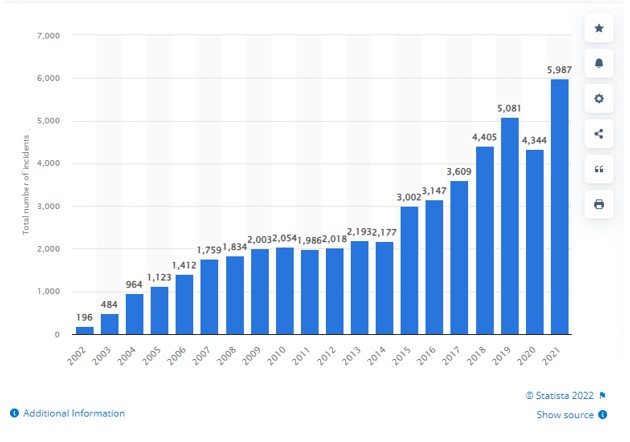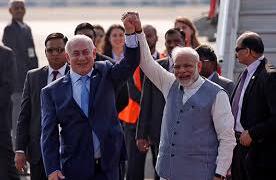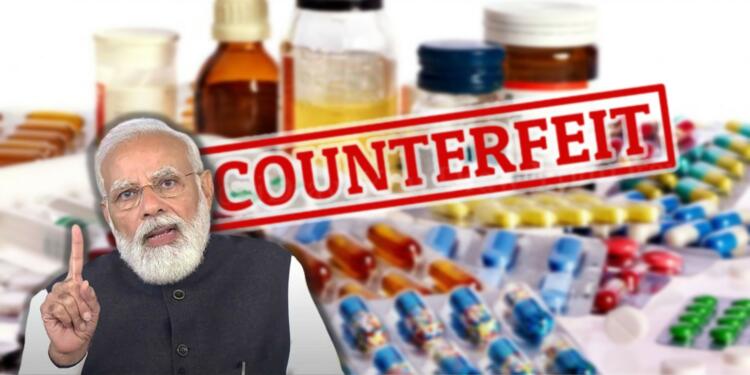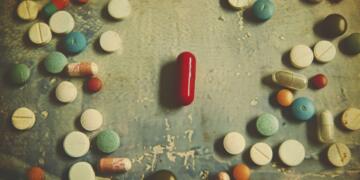Issue of counterfeit medicines: With the everyday increase in fake medicine cases, the thought of whether the medicine you are taking is safe or not probably has crossed your mind at least once. Especially after the unprecedented pandemic, the market has seen a massive increase in such cases of falsified medicines. To curb this menace, the government is all set to clobber the fake pharma companies.
Barcodes to mitigate fake drugs
As per reports, the government is launching a ‘track and trace’ mechanism for top-selling medicines to mitigate the issue of counterfeit and substandard medicines in the market.
According to the Times of India, around 300 top-selling drug companies will be required to print barcodes or quick response (QR) codes on their primary packaging such as bottles, cans, and jars, among others that contain saleable items. Antibiotics, anti-allergic, cardiac, and pain relief pills with an MRP of more than Rs. 100 per strip is anticipated to be included.
The proposed system by the government will now allow customers to authenticate the drug-related information through government portals. The website will provide a wide range of details like identification code, brand name, name and address of the manufacturer, proper and generic name of the drug, batch number, manufacturing date, expiry date, and manufacturing license number. Further, the customers will be able to enter a unique ID code and track it through the government portal.
As per reports, a central database agency is being planned to set up as a single barcode provider for the entire industry. However, it will take some weeks to implement. The implementation of the system will increase costs by 3 to 4 percent. Further, as per industry experts, the proposed technical solution will provide consumers and manufacturers to report any counterfeit through pharma codes.
Read more: QR codes on medicine wrappers. PM Modi’s latest game-changer
The deadly increase of fake medicines
According to data from the World Health Organization, around 10 per cent of medical items in low or middle income countries are substandard or fake. No country has remained untouched by this issue. What was once considered a problem for developing or low-income nations has now become a concern for all.
As per Statista, data shows that the total number of counterfeit incidents has increased worldwide from 2002 to 2021. In the year 2002, 196 such incidents were reported by the Pharmaceutical Security Institute. On the other hand, the annual number of such crimes increased significantly reporting almost 6000 such incidents in 2021.

To put it simply, there have been numerous instances of counterfeit and substandard drugs regulated in the market over the years. As per WHO, various children die every year due to diseases like pneumonia, and malaria, among others which are caused by substandard and falsified medicines.
Read more: India set to become the global medicines hub
Alarming counterfeit medicines in the market
In the past some years, various such instances came to the limelight which shook the pharmaceutical industry. A fake drug racket of Glenmark’s blood pressure pill Telma-H at Baddi was highlighted.
Apart from this, Abbott said its thyroid medication ‘Thyronorm’ was listed as “not of standard quality” by the Telangana drugs authority. It was further counterfeit and was not manufactured or marketed by it.
Medications for chronic issues are most popular, which include hypertensive drugs to diabetes medicines. Antibiotics, corticosteroids, drugs for erectile dysfunction, cancer drugs, and antiretrovirals for HIV/AIDS are among the most counterfeited.
Diet pills are another common target of illegal online pharmacies. One such incident occurred earlier when the FDA warned of counterfeit Alli, which is an over-the-counter weight-loss product. Various lab tests by GlaxoSmithKline revealed that the fakes contained none of the active ingredients. Instead, it contained the controlled substance sibutramine, an appetite suppressant.
The government understands the menace of counterfeit and substandard medicines that need to be curbed at the earliest. And therefore, it is using technology to monitor the pharmaceutical industry. The new system of QR codes will make tracing the pharmaceuticals easier. Further, it will safeguard the health of Indian citizens while also strengthening the country’s reputation as the “pharmacy of the world”.
Support TFI:
Support us to strengthen the ‘Right’ ideology of cultural nationalism by purchasing the best quality garments from TFI-STORE.COM.




























